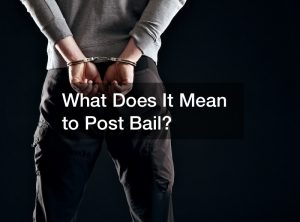If you’re like most people, you probably avoid conflict at all costs. But what do you do when conflict is unavoidable, such as when it arises within your own family?
While no one likes to argue, sometimes disputes are unavoidable. The good news is that there are legal ways to resolve these disputes without resorting to fisticuffs or pulling each other’s hair out. Here are five legal methods for resolving disputes in the family.
Family Mediation
This legal process occurs with an impartial third party facilitating communication between family members to help them reach a mutually agreeable resolution. According to the Family Mediation Council survey, 70 percent of family mediation cases resulted in a successful solution. That means if you’re having a dispute with another family member, this might be an excellent option to consider.
This type of dispute resolution is often used in cases involving divorce, child custody, and visitation rights. The mediator will help the family members reach a consensus, and if both parties agree to the outcome, it can be legally binding. As a result, it can be an effective way to avoid lengthy and expensive court battles.
Collaborative Law
This legal option is similar to mediation because it involves an impartial third party facilitating to reach a resolution. However, whereas mediation is typically used to resolve interpersonal disputes, collaborative law is generally used to resolve business disputes.
Family businesses, trusts, and other such legal entities can use this option to avoid costly litigation. The collaborative law process involves both sides reaching a fair agreement that is legally binding and can be enforced in court if necessary.
However, it should be noted that the collaborative law process is often lengthy and can involve several professionals, such as attorneys, financial advisors, and mental health professionals. Therefore, it’s crucial to weigh the cost of going through this process before deciding if it’s the right option for you.
Arbitration
This dispute resolution is often used in cases involving breach of contract. But unlike mediation and collaborative law, which are both voluntary processes, arbitration is a binding process wherein the arbitrator’s decision is final and cannot be appealed.
That’s why you might need a family attorney to represent you in an arbitration case. Having a professional to represent you in this type of dispute resolution process can help ensure that your interests are well-presented and that the decision is fair. Nonetheless, the advantage of this method is that it can be much quicker and less expensive than going to court.
Arbitration is commonly used in family disputes involving business assets, such as when a business partner wants to buy out another partner’s share. The arbitrator will listen to both sides and make a final legally binding decision. And, if either party disagrees, they can appeal the decision to a court of law.
Early Neutral Evaluation (ENE)
In an ENE, an impartial evaluator assesses the merits of each party’s case and makes a non-binding recommendation for settlement. ENEs are often used in cases involving divorce and related family matters, such as child custody and visitation, spousal and child support, and property division.
Although this process is non-binding, it can be conducive to getting both sides to reach an agreement. The evaluator will carefully weigh each side’s arguments and devise a fair solution that both parties should consider. Then, if both sides are satisfied with the recommended outcome, they can sign a legally binding contract to make it official.
This type of dispute resolution can be a cost-effective way to resolve disputes, and it generally takes less time than mediation or collaborative law processes. That means the parties can reach an agreement in a shorter period.

Litigation
Suppose you’ve tried all the other legal options and still can’t reach a resolution. In that case, litigation is usually the final alternative. Litigation is the process of bringing a civil or criminal action before a court of law to enforce or protect a right or for the redress of wrongs.
This type of dispute resolution should be considered a last resort after all other options have been exhausted because it can be costly and time-consuming. Because of the complexity and cost involved, it’s wise to consult a family attorney before initiating a court action.
No matter what type of dispute you’re facing in your family, there are legal options available that can help reach a resolution. The above are only a few legal dispute resolution methods you can use to get a fair and amicable agreement. But ultimately, the best course of action for you and your family will depend on the nature of the dispute. With the right decision, you can reach a resolution that is beneficial to all parties involved.





